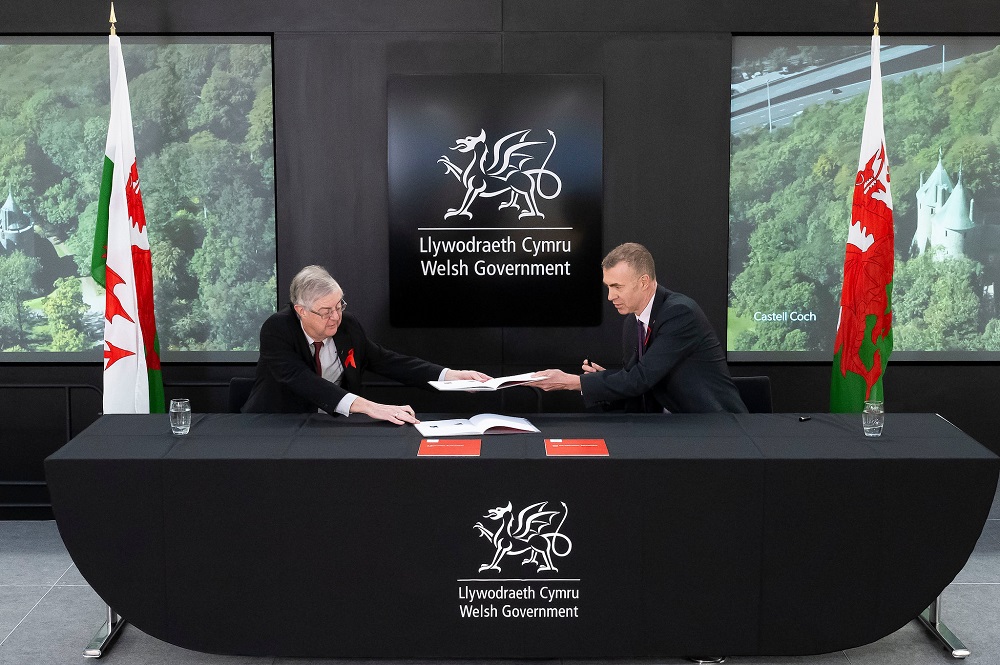Giving a free pass on the budget undermines Plaid’s credibility as opposition

Theo Davies-Lewis
On Tuesday, the Senedd will debate the Welsh government budget. But there is little need for the charade. Proposals will always pass with no dramatic to-the-wire climax, thanks to the support of Plaid Cymru.
Nationalists have long held the keys to successful budget days. Before bargaining and negotiating policies here and there, their role as an official buffer for Welsh Labour is now confirmed in the parties’ co-operation agreement.
It is there in black and white: as well as agreement across dozens of policy areas and securing the support of Plaid on any confidence votes, avoiding budget defeats is certain for the political agenda over the next couple of years.
And who can blame Mark Drakeford and Adam Price for wanting to formalise a way of working that was normalised for the last two decades?
The rationale of the agreement is clear for both Welsh Labour and Plaid Cymru. The former, in power but not full control of parliament, wants to govern as effectively as possible without having to enter formal coalition or a less committal confidence-and-supply arrangement. The co-operation agreement suits Plaid too.
Many of its key policies, regulating second homes and investing in Cymraeg, are now fundamental elements of Welsh public policy. It even has ‘designated members’ to help ensure things get done alongside ministers. No political party in the UK has influenced a government’s agenda without being in power as much as Plaid Cymru.
And this is why Plaid deserve respect. If Labour has been the pragmatic winner of Welsh politics – the Conservatives in Wales the ideologically alien party and tormented loser – Welsh nationalism produces our great thinkers.
‘Solidarity tax’
Plaid Cymru is a party with intellectual and cultural depth that has regularly shifted the dial for trends in national life. Or think of it like this: Adam Price, like many of his predecessors as leader, is just as comfortable in the lecture theatre as the political arena.
This is where the budget comes into it. Price has said this week that an “unprecedented crisis calls for genuine solutions.” Specifically, tax rises. Plaid Cymru’s group in the Senedd has long mulled a “solidarity tax” to support public services amidst the cost-of-living crisis.
The party wants a 1p in the pound increase in the basic rate, 2p for the higher rates and an extra 3p for the additional rate. It’s forecast to raise £312m for government spending that could be used, they say, for providing pay rises for nurses and a mortgage rescue scheme.
The trouble is that Welsh Labour will never agree. It has had power to raise income tax since 2019 and it won’t be using them anytime soon. It may make sense in a cost-of-living crisis to placate striking workers by providing better pay in the NHS and for social care workers, but doing so off the back of cash-strapped taxpayers is not the route to continued electoral dominance in 2026.
The politics from Welsh Labour’s perspective is just impossible; Plaid would do well to remember that there is a difference between truly governing and being in opposition.
Whether Plaid’s policy is rejected doesn’t matter: even their abstention will allow the Welsh budget to pass. They’re bound by its co-operation agreement from 2021, giving up any aggressive opposition it would hope to provide in the process.
Of course, there are costs and benefits to any deal, the need for negotiation imperative. Yet it is telling that the Welsh Conservatives are shooting at any easy target when urging Plaid to “stop propping” up the government if they disagree with it so strongly.
Credible opposition
As I wrote in these pages in December, I have little doubt that all three major parties will have new leaders soon, possibly all by next year. The co-operation agreement would inevitably come under review, whoever succeeds Mark Drakeford as First Minister and Adam Price as Plaid Cymru leader.
Both parties may assess that a couple of years from an election means more distinct policy approaches are more helpful than adopting a collaborative approach.
Plaid Cymru should realise it cannot be a credible opposition and governing party at the same time; one foot in and one foot out doesn’t work in politics.
Proposing policies (serious ones too) cannot be taken seriously if you are not willing to set red lines on their implementation.
The budget debate this week will be a case in point. Plaid Cymru, far from being the Party of Wales, is but the parliamentary guarantor for others.
Support our Nation today
For the price of a cup of coffee a month you can help us create an independent, not-for-profit, national news service for the people of Wales, by the people of Wales.






Where does Adam Price’s political ambition of being Leader of the Welsh Government now stand ?At the moment it is a marriage of convenience and they are not renowned for their longevity.
A few gains for certain thanks to Plaid in the end days of MDs leadership but at what cost for Wales and Plaid ? AP will find that yet again Labour claim credit at election 🗳️ time and the cost for Plaid missing the open goal 🥅 on poor health and education leadership. Some folk ask again – what is Plaids purpose ? A Welsh conscience for Labour on rural issues ? A language/ community safe guard. Group. ? Plaid is the SDLP of Wales. Well intentioned and honest folk serving their communities well but as for the big game… Read more »
Couldn’t agree more!